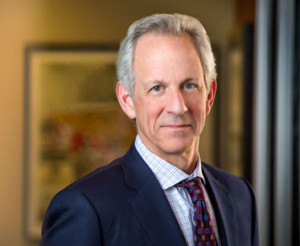
This week Fred Pritzker was a guest lecturer at the University of Minnesota School of Law. The topic was on evidentiary issues associated with use of scientific evidence and expert witnesses, especially in light of Daubert. He also discussed the use of rules, codes and standards, as well learned treatises.
Finding an Expert Witness
Fred has a list of highly regarded scientific experts who he has used in the past. In many cases, though, new evidentiary issues require him to find new experts. Fred told the students that he looks for good experts that do good scientific work, not people who do junk science. “A lot is at stake and human beings are affected,” he said.
Finding a good expert witness takes time. To find the best expert for a case, Fred looks at medical and other scientific journals, talks with the authors of relevant articles and talks with university researchers.
What is the Role of a Judge in a Daubert Case?
A trial judge looks at the “Daubert Standard” (Daubert v. Merrell Dow Pharmaceuticals, Inc., 509 U.S. 579 (1993)) to decide whether expert scientific testimony is admissible in court. Under Daubert, scientific testimony has to be 1) based on scientifically valid reasoning or methodology and 2) apply to the facts of the case. Two factors the judge can considered to determine this include the following:
- Has the scientific theory or methodology on which the testimony is based been tested?
- Has the theory or methodology been part of a study published in a peer-reviewed medical journal?
Fred told the students that reading relevant journal articles is necessary with Daubert cases because the expert testimony has to meet the standard and also because it is necessary for cross examining the other side’s scientific experts.
“You have to be able to talk with the experts on their level. To do that, you have to immerse yourself in the science.” — Attorney Fred Pritzker
Rules, Codes and Standards
With product liability claims, a lawyer has to look at applicable rules, codes and standards to see if the defendant has violated any of these and if the violation contributed to the plaintiff’s injuries. In the last decades there has been a proliferation of rules, codes and standards that apply to all aspects of manufacturing and commerce. One example is Hazard analysis and critical control points or HACCP. The FDA describes the food safety HACCP process as follows:
HACCP is a management system in which food safety is addressed through the analysis and control of biological, chemical, and physical hazards from raw material production, procurement and handling, to manufacturing, distribution and consumption of the finished product.
For cases using scientific evidence, the attorneys need to know all applicable rules, codes and standards and use them to build a winning case.
About Fred Pritzker
Fred Pritzker is a national food safety lawyer with almost 40 years of experience representing individuals and families in significant personal injury and wrongful death claims throughout the United States.
Fred’s law firm represents survivors of foodborne illness in cases involving pathogenic microorganisms and natural toxins. You can call 1-888-377-8900 (toll free) to contact Fred Pritzker.